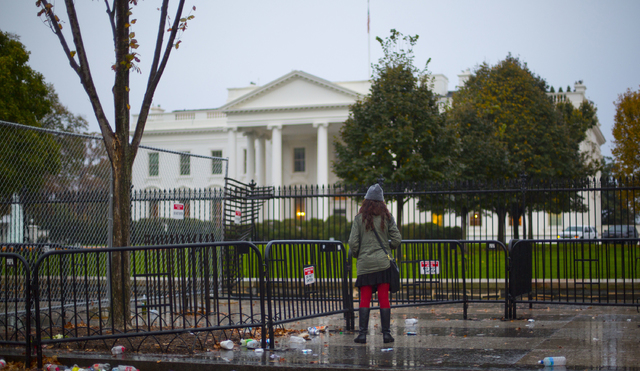NO CHILD LEFT BEHIND: Making the Grade
To pass or not to pass. It's a question asked by thousands of students across Nevada as they scribble on federally mandated tests required by the 2002 No Child Left Behind Act.
Primarily written by the late Massachusetts Democratic Sen. Ted Kennedy and signed into law by Republican President George W. Bush, No Child Left Behind's philosophy paints a picture of students engaged and active in the learning process, receiving the necessary materials to succeed in a variety of academic disciplines. Its methodology implements accountability in the form of standardized testing for both students and teachers and allocates money to those states that meet the required results.
"No Child Left Behind is directly attached to $90 million in funding we get," says Keith Rheault, superintendent of the Nevada Department of Education.
Widely called Title I money due to the organization of the bill, funding for public schools whose test scores do not meet adequate yearly progress is not affected. No Child Left Behind dictates that these schools be put under supervision of the state and, if insufficiency persists, the state may create a new structure for the school or tutoring for failed students after school.
Under No Child Left Behind, state legislatures define adequate yearly progress and create evaluations to show that they are complying with the act's goals. Nevada classifies adequate yearly progress based upon graduation rates, academic achievement appraised by the tests, school attendance and the percentage of students tested.
Supporters of the act contend that accountability puts schools on the path to success.
"It holds schools accountable, yes. But even more so, it holds teachers accountable," says Chuck Keller, a teacher at Las Vegas Academy. "The quality of the teachers goes up."
No Child Left Behind requires schools to release data specifically aligned with the progress of ethnic minority groups and provides the state with a better hand in tracking a school's state of development.
However, in order to obtain the desired results, core programs such as English, math and science receive more money, leaving some schools to cut the fine arts in compensation.
Contentions rise as to whether a school's increased focus on core classes improves the educational conditions of Nevada.
"I've spent the past seven years learning nothing but rote memorization in nearly every subject," says Palo Verde High School senior Natasha Lejbman. "Teachers do not have the flexibility in their own classrooms to teach what they want because of the requirements given by NCLB."
Others blame the act's perceived failures on governmental definitions of adequacy.
Wyatt Currie, a junior and president of the Conservative Club at Las Vegas Academy, disagrees with the act's execution and generalized criterion.
"Standardized tests that the bill mandates are useless, because they're expecting us to know beyond our set level," Currie says. "They're putting the American school system against the European school system in order to catch up."
With standardized assessments given to students on a regular basis, complaints about the amount of testing have reached legislative ears in past sessions. Voters and students alike criticize the law for its lack of funding and hidden attached strings.
"When a school gets designated as inadequate, it stigmatizes a school," Rheault says. "I think that's what infuriates people the most."
Dissenters also argue that the U.S. Constitution does not give the federal government any power over education. They call for revocation of No Child Left Behind and a return to state control of education policies.
"I believe education is a state power," Lejbman says. "NCLB should be abolished and states should create their own educational systems."
R-Jeneration

















